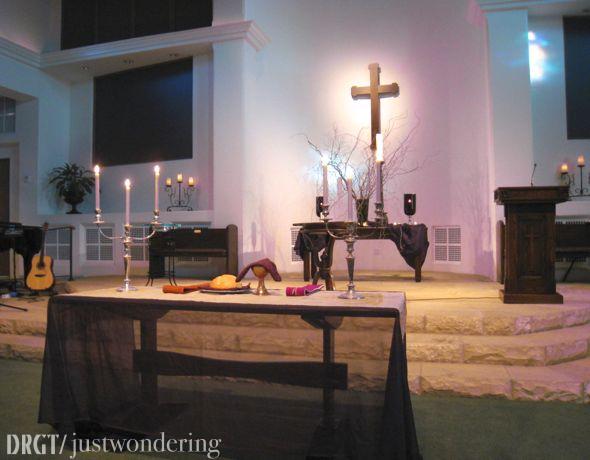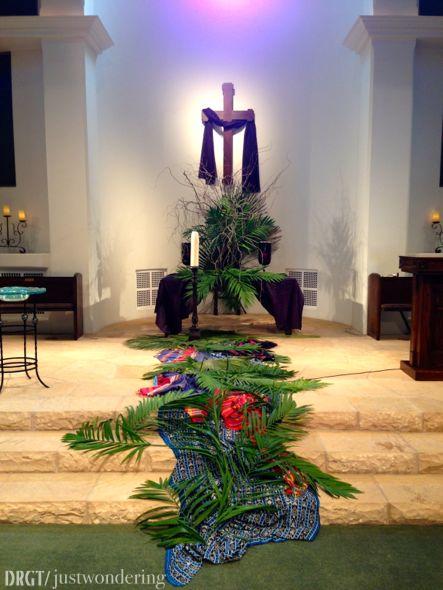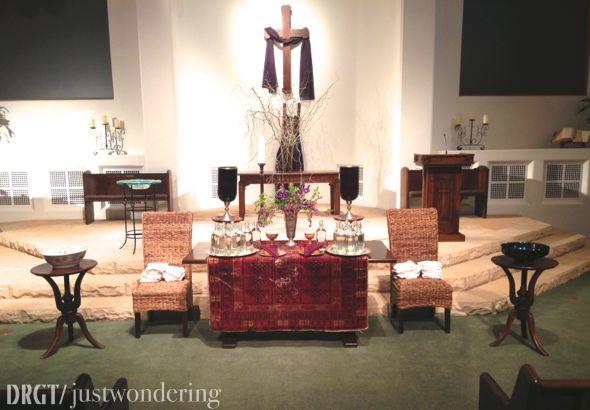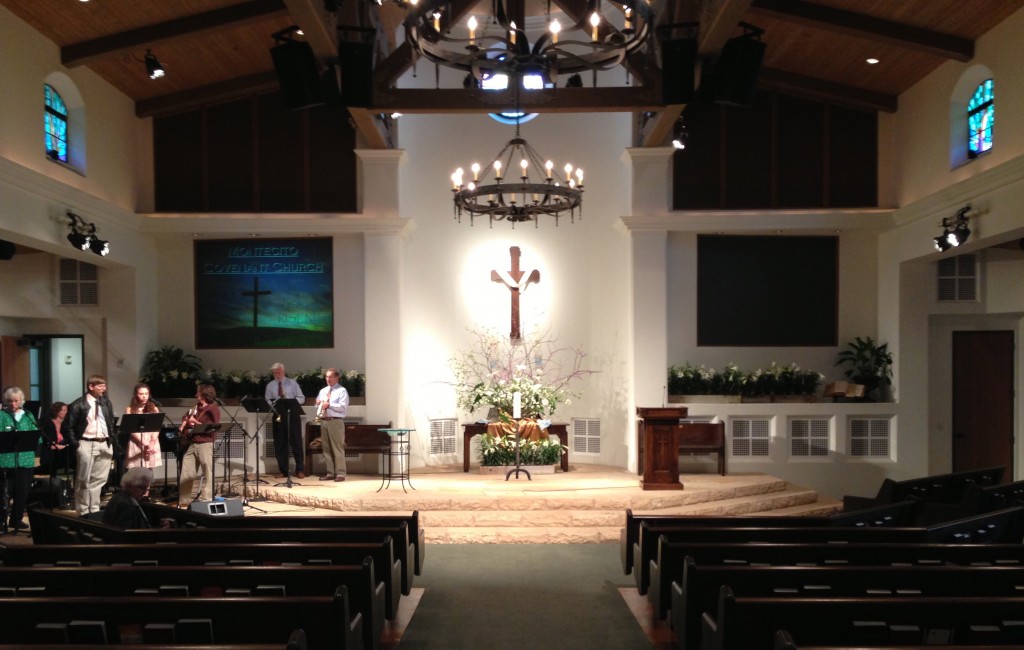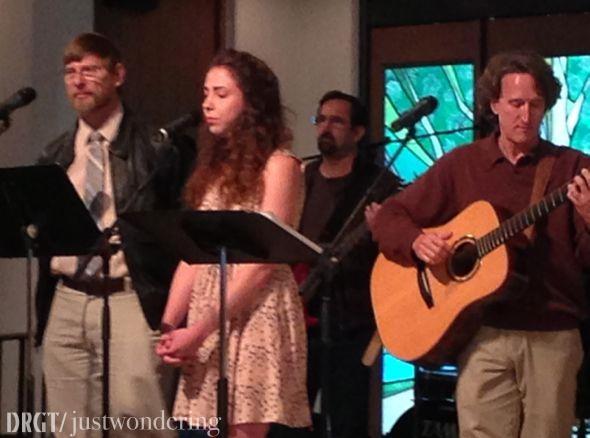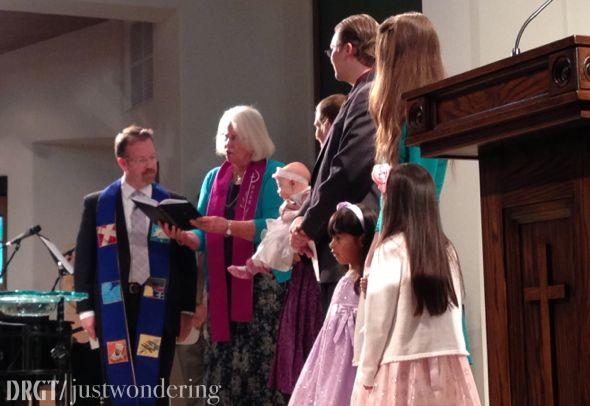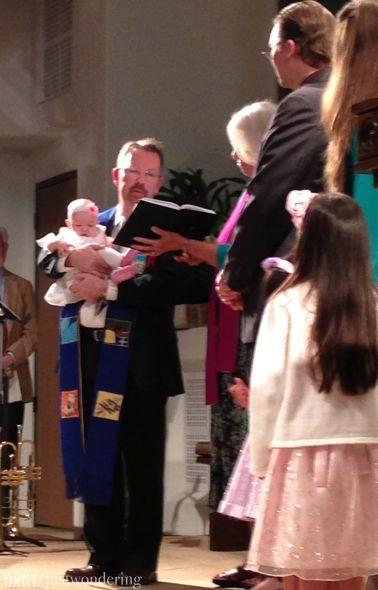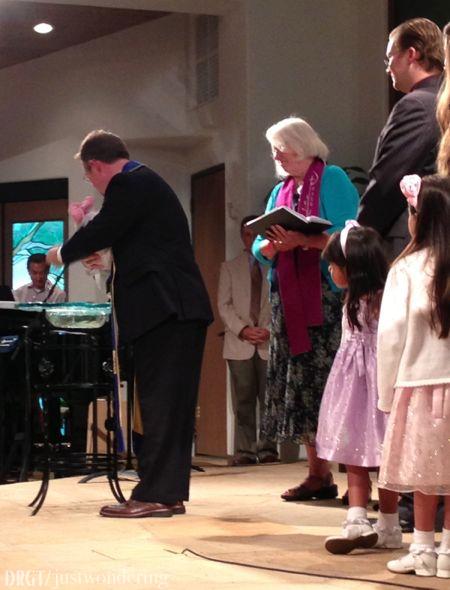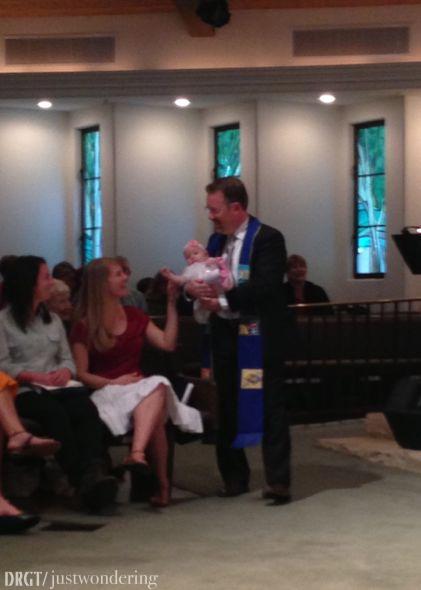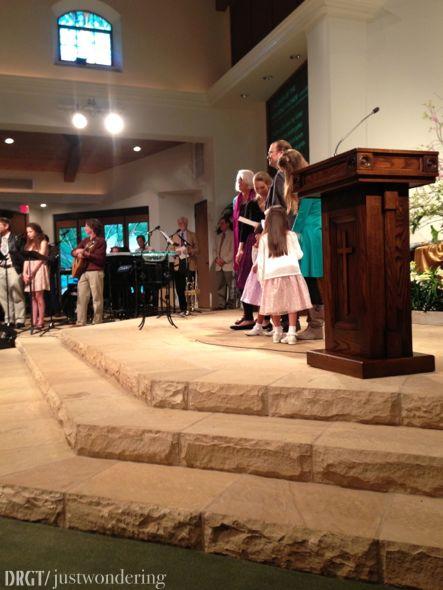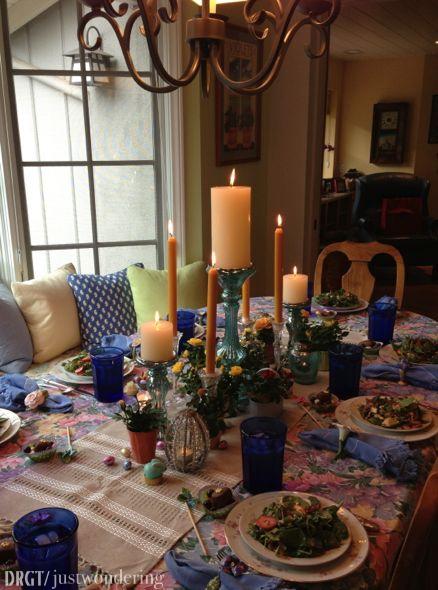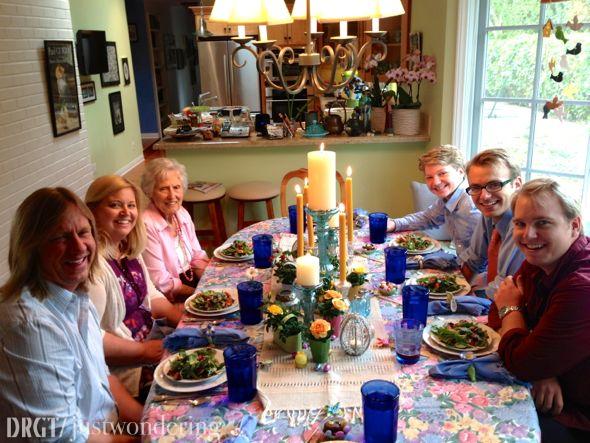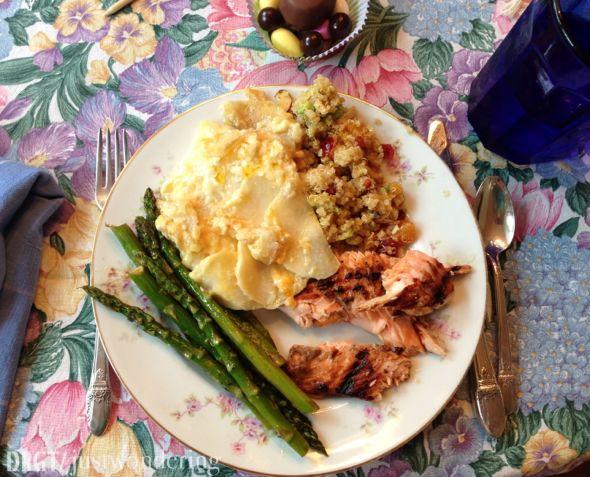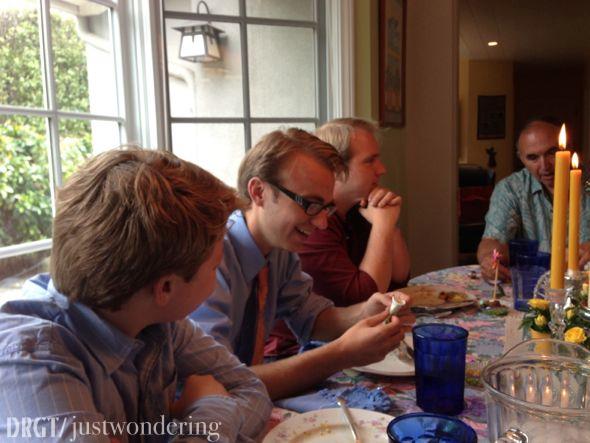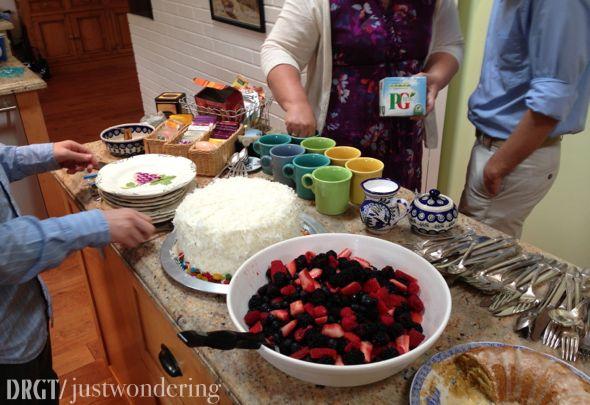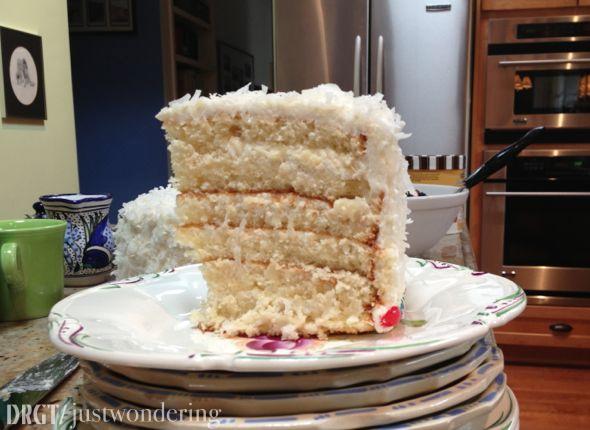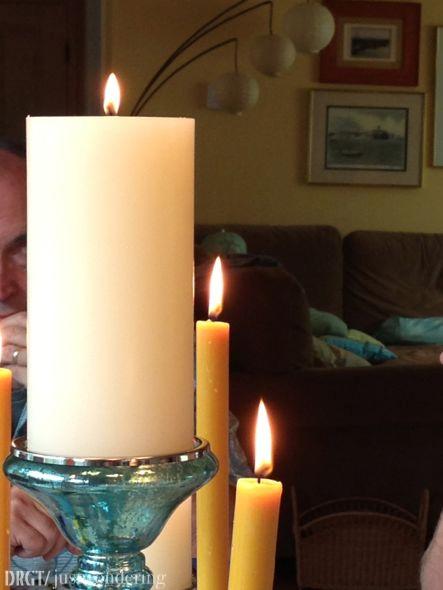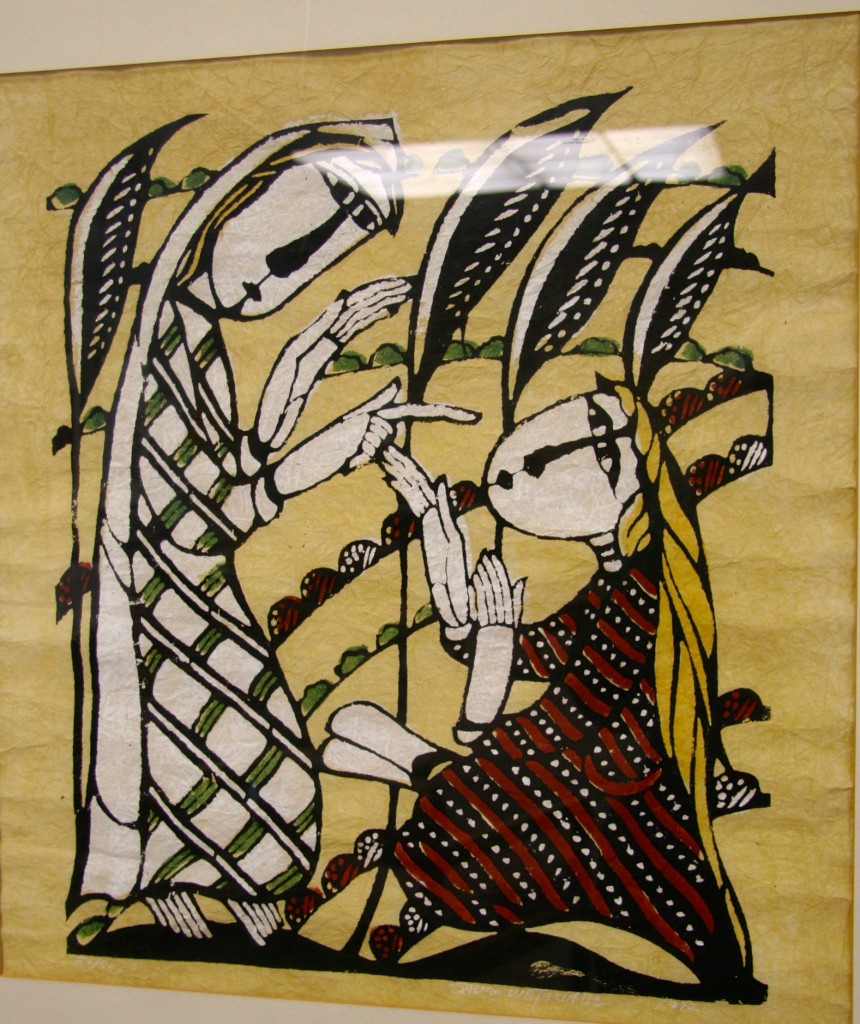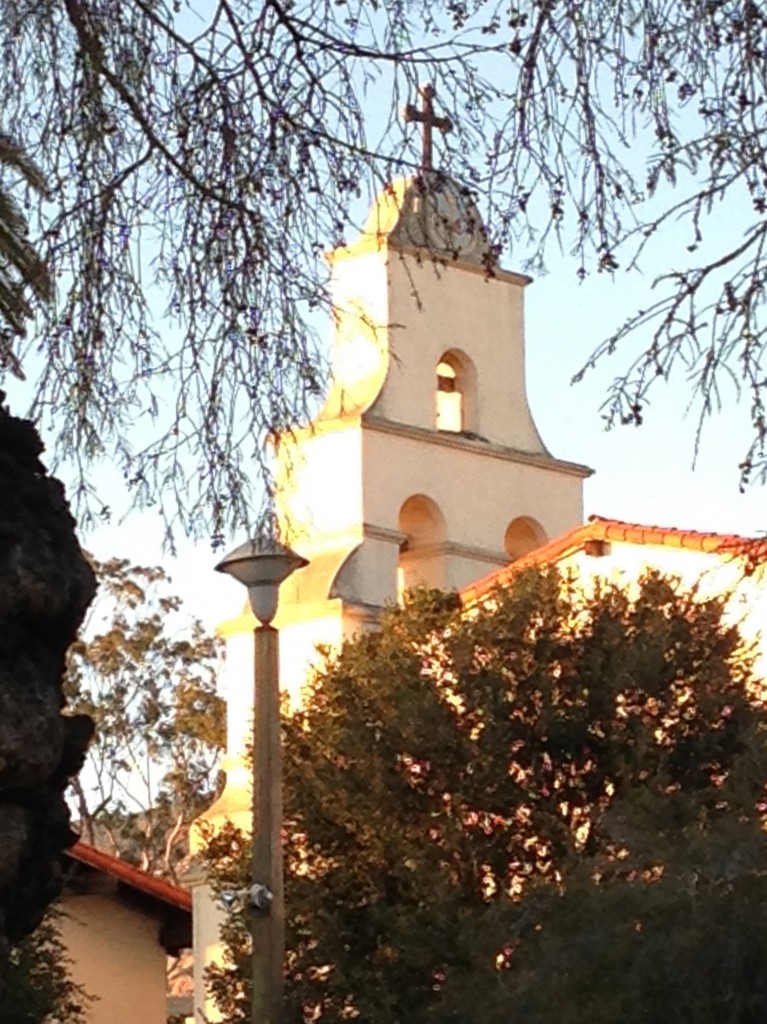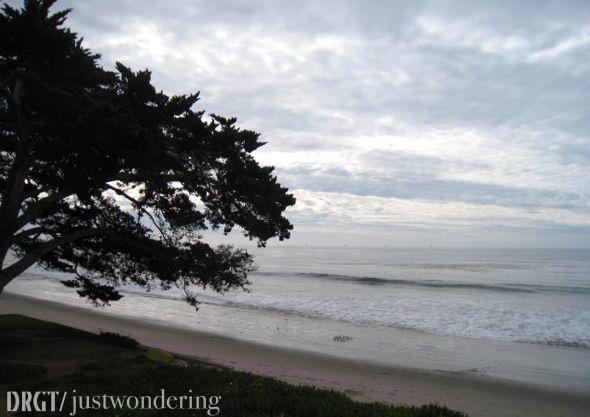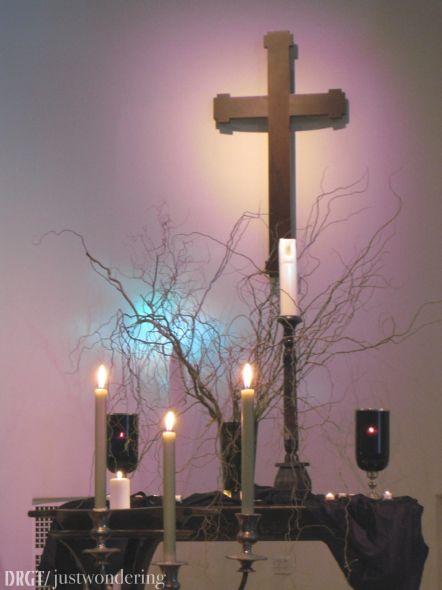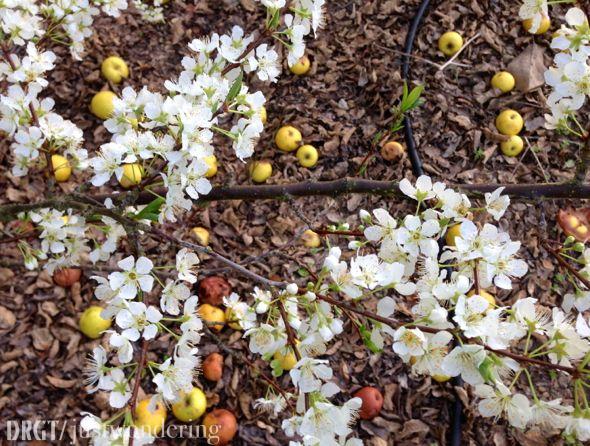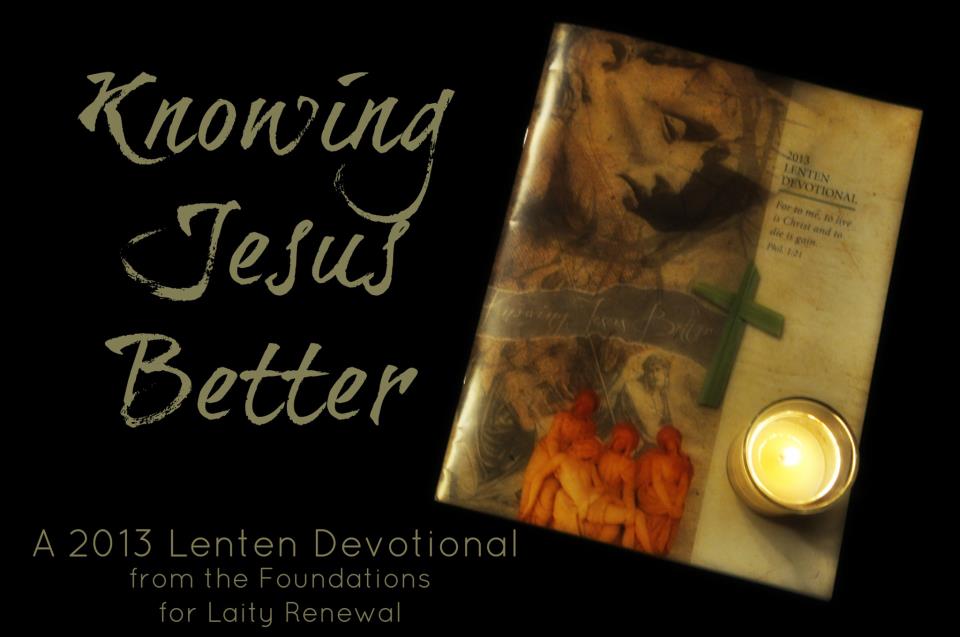It rained on Easter Sunday, gentle but insistent,
washing the air, watering the earth,
catching our attention.
The sun did not break through until late in the afternoon,
and somehow, it felt absolutely right for this particular Easter celebration day.
I have stepped back into leadership during this Lenten season,
enjoying the familiar rhythms of leading weekly communion services.
Services that are liturgical, yet at the same time, informal and friendly.
Our congregation enjoys the aesthetic contributions of a small group
of thoughtful, talented women
who work with the preaching pastors to provide
a worship environment that encourages us to better
focus on the Word offered on a particular Sunday,
or throughout a season.
All during Lent this year,
we were reminded of the journey
by a simple purple drape on the cross
and a large urn,
filled with bare branches.
On Palm Sunday, those branches were visible above the array of color
provided by palm fronds and fabric.
On Maundy Thursday, they were visible on the back altar table,
behind the richly purple setting on the front table.
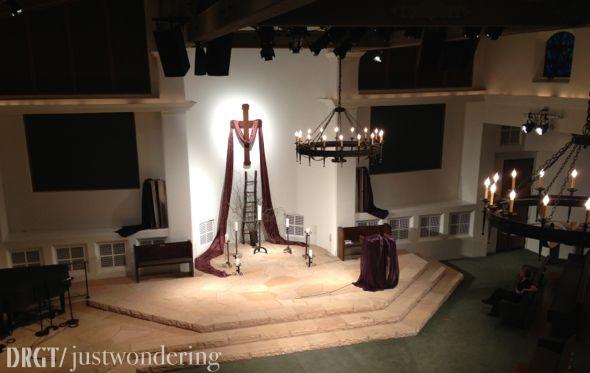
On Good Friday, they disappeared,
along with every other usual object in the chancel —
the baptismal font and table removed,
the pulpit shrouded.
And on the side shelves, where greenery usually flourishes,
only these upended wooden boxes, draped
in dark fabric like the cross.
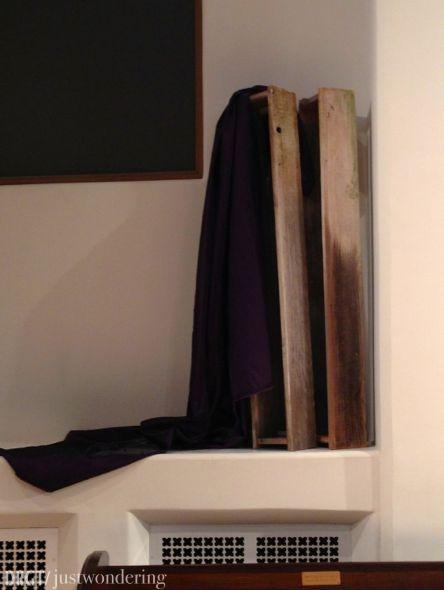
And then came Easter!
Those bare branches?
Now richly flowering.
The purple drape on the cross?
Replaced with shining white.
Those stark wooden boxes?
Filled to overflowing with
lilies, waving their brilliant faces across the front of the sanctuary.
 A glorious feast of white and gold,
A glorious feast of white and gold,
the Christ candle tall and stately in the center of it all.
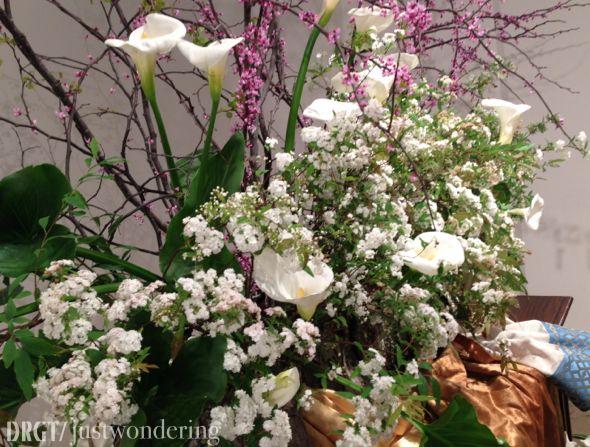
Shaking rainwater off of coats and jackets, worshipers filled the sanctuary
earlier than usual.
Almost on cue, they began to settle into their seats,
quiet their conversations and ready themselves to worship.
We began where we left on Friday.
That night the plaintive sounds of “Were You There?”
filled a dark room, and everyone left in silence.
On Sunday morning, the lights dimmed,
as the room filled once again with the sounds of that old song,
this time in the lilting soprano of a high school senior.
As she sang, our pastor came slowly down the center aisle,
lit candle in hand,
arriving at the Christ candle as the song came to its end.
And as the Light is lit,
the alleluias begin — full lights,
drums, trumpets, oboe, voices and glorious, glorious music.
“Christ is Risen!”
“He is risen, indeed!”

I don’t know that I’ve ever been more grateful to say those words
than I was this year.
One of our founding members, now in her 90’s,
declared this the finest Easter celebration she has ever experienced.
And I’d have to agree with her.
One of the lovely events that added layers of meaning to the day
was the baptism of the infant daughter
of our former Director of Children’s Ministries.
Following the tradition of the early church
(and the contemporary Catholic church, as well),
we folded small Anastasia (whose name means ‘to live again’)
into the family of God on Easter Sunday, trusting that the work of the Holy Spirit
will be real in her life as she grows to claim
the name of Jesus for herself.
Jon and I read the words together,
asking the age-old questions of parents and people,
dripping the water on her small head,
offering words of blessing to this babe and her family.
And then, Jon carried the church’s newest member
up and down the aisles, introducing her to her new family,
while we all sang, “Children of the Heavenly Father.”
Jon’s sermon was strong and true,
spoken from the heart with illustrations my visiting
grandsons could enjoy.
It was a magnificent way to begin the Easter Feast.
And then our smaller-than-usual family group continued the feasting
gathered around our table, as the rain fell gently outside.
Our oldest daughter, her husband and three fine sons
joined my husband, my mother and me to break the fast of Lent
and celebrate the Risen Lord.
The salad course was first,
followed by barbecued salmon,
cheesy potatoes,
a divine quinoa side dish that Lisa has added to our repertoire,
and baked asparagus with a balsamic glaze.
Even our resident vegan ate enough to require a little resting between courses!
These three young men have had a more difficult life than most their age.
They lost their dad after a long, lingering and difficult illness.
It is good to see them happy as a family,
with Karl and Lisa giving good direction and
providing a living model of redemption in that home.
There can be resurrection in this life of ours —
we remember this truth every time we are with them.
Fourteen-year-old Joel is our resident baker/chef and he created this
stunning coconut cake to cap off the day.
It tasted even better than it looks,
and it looks divine!
Poppy got a candle in his piece,
because he celebrated a birthday that was
pretty much lost in the shuffle of Holy Week activities.
The candle that was lit at the beginning of our worship,
was also lit in the center of our dining room table.
And as the afternoon clouds moved slowly away,
the blueness of sunshine-after-rain
seemed a fitting and celebratory way
to finish off the feast.
Christ is risen!
He is risen, indeed!
Joining this longer than usual picture-essay with Michelle, Jen, Laura and Jennifer




